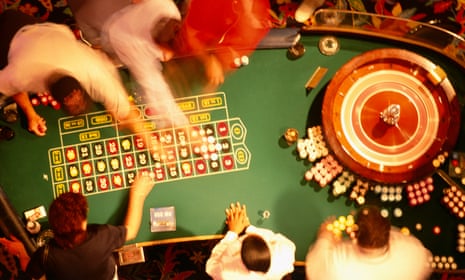A team of researchers has published the most sophisticated experiment ever conceived on the relationship between uncertainty and stress. The volunteers for this experiment played a computer game requiring them to overturn rocks that might have snakes hidden under them. If a snake appeared, a painful electric shock was delivered. The participants were thus highly motivated to figure out which rocks hid the snakes.
Naturally, they tried to learn the habits of the snake population, better to avoid the shocks. So the investigators, Archy de Berker and colleagues – made sure that the level of uncertainty – what they call “irreducible uncertainty” or risk – would fluctuate yet remain high. And this fluctuating uncertainty was precisely tracked by a fancy mathematical equation. This rising and falling uncertainty provided a timeline on which to map participants’ stress responses, as well as their performance in the game.
The researchers tracked stress through several physiological measures, including skin conductance (sweatiness of the skin) and pupil dilation. But they also got their participants to report on how stressed they were feeling from moment to moment.
The main finding was that all measures of stress, both subjective and objective, maxed out when uncertainty was highest. When predictability was at 50%, when people had absolutely no clue whether they were about to get shocked, stress peaked. Other studies have also uncovered a link between uncertainty and stress, but never with such precision.
So what’s the big deal? Everyone knows that uncertainty is stressful. But what’s not so obvious is that uncertainty is more stressful than predictable negative consequences. Is it really more stressful wondering whether you’ll make it to your meeting on time than knowing you’ll be late? Is it more stressful wondering if you’re about to get sacked than being relatively sure of it? De Berker’s results provide a resounding “yes”. But why might this be so?
The dopamine system has become famous because of its role in addiction. We know that addicts have a hard time resisting temptation because drug-related cues send dopamine geysering up to the striatum, a deep (and relatively primitive) brain structure often labelled the “reward centre”. But the striatum isn’t just about reward. More accurately, it’s an action centre. It not only propels behaviour toward positive outcomes like getting high; it also propels behaviour away from negative outcomes – punishments and aversive consequences. That geyser of dopamine activates the striatum just as much whether good news or bad news is coming your way.
In fact, over several hundred million years of evolution, the striatum has developed an additional talent. It not only anticipates good and bad consequences; it also performs a unique mathematical feat: it predicts the odds of those consequences. And it chimes most loudly, most urgently, when those odds approach 50%.
This makes good sense for animals intent on survival. Action is most needed when consequences are least predictable. In soccer, players try hardest when they have a chance of scoring, not when it’s an easy shot and not when it’s an almost impossible shot. The energy directed to uncertain positive consequences makes football exciting and fun. But it’s hell on gamblers. There’s good evidence that gamblers are hooked, not by sure wins but by lucky wins, unpredictable good fortune.
Now flip this equation upside down: action is also most beneficial when negative consequences are unpredictable. If traffic is going well and you’re likely to get to your meeting on time, there’s no need to fret, rush and worry. If you’re in a bumper-to-bumper jam, highly likely to be late, you might as well relax and think about making your excuses. But if it’s really touch and go, if your odds of making it on time approach 50%, that’s when you’ll try your hardest. And the prompt for that effort is stress.
Now the striatum is flooded with dopamine and its job description requires it to do something, do anything, to improve those odds. In trying to trigger some corrective action, it activates the sympathetic nervous system – the fight or flight system – which opens your sweat glands, dilates your pupils, and energises the action-oriented muscles throughout your body.
These researchers reported a secondary finding that puts some icing on the evolutionary cake. The participants whose stress response mirrored actual (not imaginary) levels of uncertainty performed best on the task. In other words, their sensitivity to uncertainty gave them an edge when it came to predicting which rocks to avoid, even though they couldn’t avoid shocks in the long run.
So tuning your radar to uncertainty is adaptive. It helps. And no one doubts that life is characterised by uncertainty. We practise our response to ever-present (though erratic) levels of risk by recognising when we’re not in control and recruiting every available neuron to regain control.
We value control above all our other capacities. We admire others who are in control, and we congratulate ourselves as we learn to control our personal circumstances. But control isn’t the only possible response to life’s inevitable riskiness. Monks, meditators, yogis and mystics practice giving up control. For them, “irreducible uncertainty” remains irreducible, and our instinctual alarm, our attempts to outrun risk, are seen as dead ends, binding us to our animal nature and obstructing our grasp of reality.
If high uncertainty is really unavoidable, if the Buddhists are right, gratification is transitory and suffering inevitable, then, in the big picture, the odds of adversity aren’t 50% but 100%. So, if we’re concerned about the big picture, we might as well worry less about snakes and practise the art of surrender.
